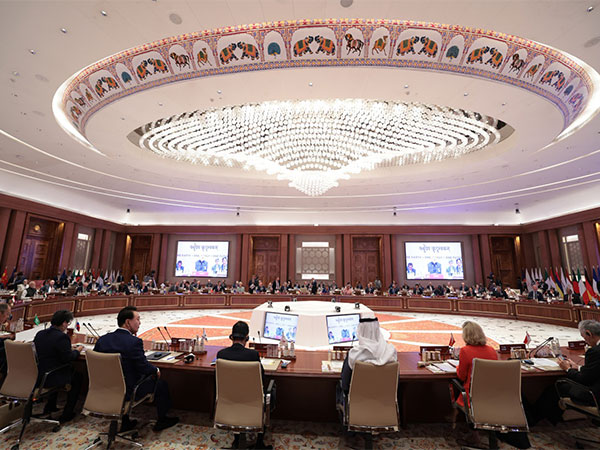

The Group of Twenty (G20) Leaders’ Summit in New Delhi has made a commitment to ensure the success of the World Trade Organisation’s 13th Ministerial Conference, which the UAE will host next year.
“We commit to work constructively to ensure positive outcomes at the WTO’s Thirteenth Ministerial Conference (MC13),” said the New Delhi Declaration adopted by the G20 Summit.
As WAM reported earlier, the foremost deliberation body of the WTO, which meets once every two years, will be coming to Abu Dhabi in February 2024, placing the UAE at the heart of the conversations that will shape the immediate future of global trade.
164 countries to gather in Abu Dhabi
The UAE will welcome the leadership of the WTO’s 164 member states to the MC13 in Abu Dhabi, just after hosting the COP28, the UN Climate Conference in Dubai in November this year with the participation of all UN member states, international organisations, and other global stakeholders. COP28 has made a landmark decision to include trade as a thematic day at the Dubai conference.
The previous WTO conference, MC12, reached landmark multinational agreements on issues such as pandemic preparedness, intellectual property rights, the removal of food export prohibitions and fisheries subsidies, in what has become known as “The Geneva Package”. MC13 is now the opportunity to finally introduce impactful reform to the WTO itself – and usher in a new wave of measures that will safeguard the future of the body as a credible custodian of the multilateral trading system.
MC13 comes at a critical time for world trade, and the conference will build on the outcomes of MC12, review the performance of the multilateral trading system, make decisions on the future work of the WTO, and set up the roadmap for MC14.
Al Zeyoudi as chairperson
The General Council of the WTO recently elected Dr. Thani bin Ahmed Al Zeyoudi, Minister of State for Foreign Trade, as Chair of the MC13.
Al Zeyoudi participated in the G20 Trade and Investment Ministerial Meeting (TIMM) in Jaipur, India, late last month, which made a slate of proposals to advance global trade and ensure it continues to deliver long-term growth and economic development for all nations.
The meeting adopted the key resolutions developed during the year by the trade and investment working group, which centred on five priority issues: Trade for Growth & Prosperity; Resilient Trade and Global Value Chains (GVCs); Integrating MSMEs into World Trade; Logistics for Trade; and World Trade Organisation (WTO) Reform. These resolutions were presented to the G20 Leaders’ Summit and considered for the New Delhi Declaration adopted by the Summit.
G20 reiterates inclusive WTO
The declaration reaffirmed that a rules-based, non-discriminatory, fair, open, inclusive, equitable, sustainable and transparent multilateral trading system, with WTO at its core, is indispensable.
“We will support policies that enable trade and investment to serve as an engine of growth and prosperity for all.”
The declaration renewed the G20’s commitment to ensure a level-playing field and fair competition by discouraging protectionism and market distorting practices, to foster a favourable trade and investment environment for all.
“We reiterate the need to pursue WTO reform to improve all its functions through an inclusive member-driven process and remain committed to conducting discussions with a view to having a fully and well-functioning dispute settlement system accessible to all members by 2024.”
MC13 to address hunger, food security
A top WTO official said last week that MC13 in Abu Dhabi will provide a unique opportunity to ensure that trade contributes to strengthening global food security.
WTO’s Deputy Director-General Jean-Marie Paugam noted MC13 can be a defining moment for a more food secure and sustainable future and urged WTO members to work together to overcome the stalemate in agriculture negotiations.
“Trade can, and must, help us respond to the food security and sustainable development challenges we face, and the time is now.”
Climate disasters, the COVID-19 pandemic, conflicts, and economic downturns, he added, have undermined a decade of progress in combatting malnutrition in the world.
Hunger is on rise
The UN Food and Agriculture Organisation, led by Dr QU Dongyu, estimates that up to783 million people faced hunger in 2022. And — despite historic progress in China — hunger is still on the rise throughout Africa, Western Asia and the Caribbean.
Nearly 600 million people are expected to face hunger by the 2030 target date for ending hunger and malnutrition from the Sustainable Development Goals.